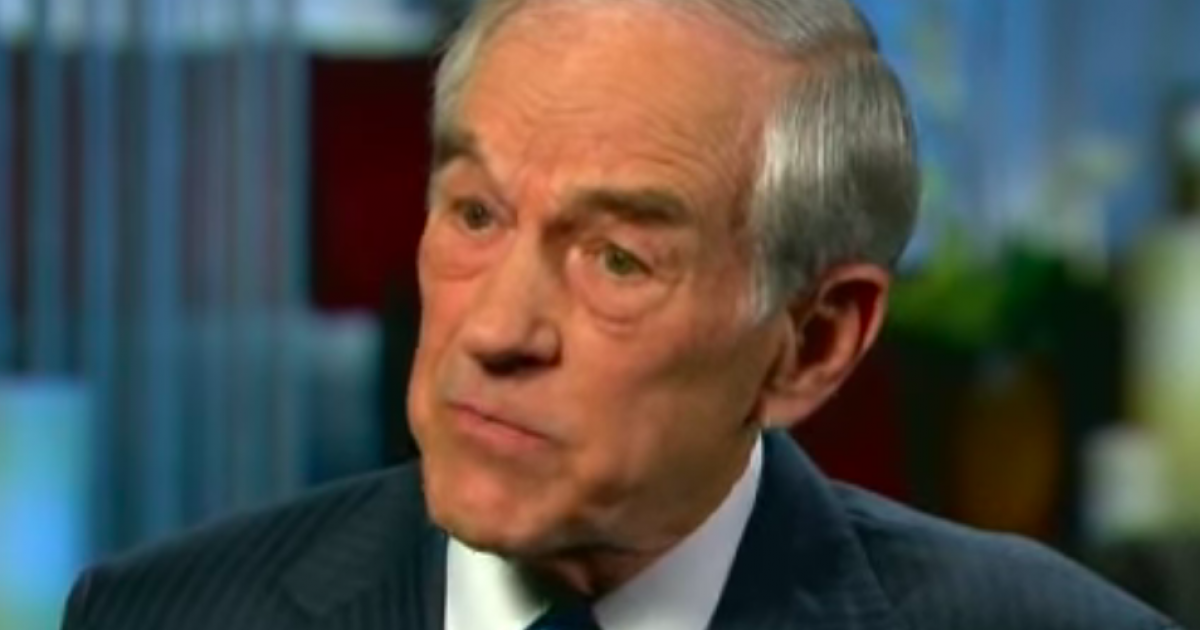
The era of wokeness is replete with enough absurdities to make a full-fledged movie.
The woke hustlers see every facet of human life as a potential vessel for their ideological machinations.
One area where wokism is beginning to penetrate is central banking. The estimable former congressman Ron Paul has sounded off on this insanity in a recent piece titled “The Woke Fed”.
Right off the bat, Paul observed that “President Joe Biden has ordered the Financial Stability Oversight Council to prepare a report on how the financial system can mitigate the risks related to climate change.” The Biden administration’s recent decision will definitely be well-received by Federal Reserve Chair Jerome Powell. The Fed Chair has been an enthusiastic advocate for getting the Fed to team up with other central banks to fight the alleged existential threat of climate change.
Paul pointed out how the Fed could tackle the climate change crisis (hint: it’ll do so by promoting cronyist, green policies):
Among the ways the Fed could try to mitigate the risks related to climate change is by using its regulatory authority to “encourage” banks to lend to “green” businesses and deny capital to “polluters.” The Fed could also use “quantitative easing” to give green industries an advantage over their non-green competitors. Another way the Fed could “fight climate change” is by committing to monetizing all federal debt created by legislation implementing the Green New Deal.
Climate change is one of the numerous theaters that the Fed is getting “woke” on. Several banks in the Fed’s network have spearheaded a number of events with the theme of “Racism and the Economy”, which have the aim of eliminating “systemic racism.” Paul speculated that the Fed’s new fixation on battling systemic racism could have it promote policies that were akin to previous relaxation of lending standards to minority groups that preceded the 2008 housing collapse:
The Fed’s commitment to ending systemic racism could lead the central bank to requiring that banks and other financial institutions further relax their lending standards for minorities. The role the Community Reinvestment Act played in the 2008 housing meltdown shows that when government forces financial institutions to give loans to otherwise unqualified applicants, the recipients of those loans often are unable to make their payments, lending to foreclosures and bankruptcies.
Additionally, Paul views race-centric arguments as a pretext for politicians to pursue easy money policies:
Racial justice arguments could also justify an easy money, low interest rate policy on the grounds that curtailing money creation slows economic growth, disproportionately harming minorities.
Looking at the “wokification” of central banking from a big picture perspective, Paul sees this is as just another policy that politicizes the economy and creates a new avenue for statist politicians to exploit for their own political gain:
The use of the woke agenda as an excuse to further politicize the allocation of capital and continue to expand the Fed’s easy money, low interest rate policy will hasten and deepen the next economic crisis. This crisis will either be precipitated by or result in the rejection of the dollar’s world reserve currency status. It will also likely result in the collapse of the entire Keynesian welfare-warfare system. Unfortunately, there is a likelihood that the current system will be replaced with a government even more authoritarian than the current one.
Making the economy go woke will do nothing to solve America’s current economic problems. A real solution consists of ending the Federal Reserve, bringing competition to the provision of currencies, and moving towards the wholesale abolition of the regulatory state.
Going woke only gives statism a new cosmetic flair, but it does precious little to solve contemporary problems in America’s political economy and only fuels further government growth.



